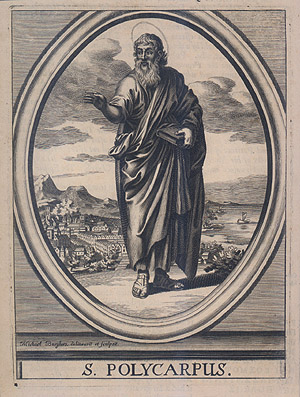- Get link
- Other Apps
- Get link
- Other Apps
Foxe's Book of Martyrs. According to this summary from Christian Book Summaries,
Writing in the mid-1500s, John Foxe was living in the midst of intense religious persecution at the hands of the dominant Roman Catholic Church. In graphic detail, he offers accounts of Christians being martyred for their belief in Jesus Christ, describing how God gave them extraordinary courage and stamina to endure unthinkable torture.
From the same link, the book's purpose was fourfold:
The Fourth Persecution, Under Marcus Aurelius Antoninus, A.D. 162
Marcus Aurelius, followed about the year of our Lord 161, a man of nature more stern and severe; and, although in study of philosophy and in civil government no less commendable, yet, toward the Christians sharp and fierce; by whom was moved the fourth persecution.
The cruelties used in this persecution were such that many of the spectators shuddered with horror at the sight, and were astonished at the intrepidity of the sufferers. Some of the martyrs were obliged to pass, with their already wounded feet, over thorns, nails, sharp shells, etc. upon their points, others were scourged until their sinews and veins lay bare, and after suffering the most excruciating tortures that could be devised, they were destroyed by the most terrible deaths.
Germanicus, a young man, but a true Christian, being delivered to the wild beasts on account of his faith, behaved with such astonishing courage that several pagans became converts to a faith which inspired such fortitude.
Polycarp, who was a student of the Apostle John and the overseer of the church at Smyrna, heard that soldiers were looking for him and tried to escape but was discovered by a child. After feeding the guards who captured him, he asked for an hour of prayer, which they gave him. He prayed with such fervency that his guards said they were sorry they were the ones to capture him. Nevertheless, he was taken before the governor and condemned to be burned at the market place.
After his sentence was given, the governor said to Polycarp, "Reproach Christ and I will release you."
Polycarp answered, "Eighty and six years have I served him, and he never once wronged me; how then shall I blaspheme my King, Who has saved me?"
At the stake to which he was only tied, but not nailed as usual, since he assured them he would stand immovable. As the dry sticks around him were lit, the flames rose up and circled his body without touching him. The executioner was told to pierce him with a sword, which he did. Upon being pierced, a great quantity of blood gushed out and put out the fire. Although is Christian friends asked to retrieve the body so it could be buried, the enemies of the Gospel insisted that it be burned in the fire, which was done.
"You shall treat the stranger who sojourns with you as the native among you, and you shall love him as yourself, for you were strangers in the land of Egypt: I am the Lord your God." (Leviticus 19:34)
"Rendering service with a good will as to the Lord and not to man," (Ephesians 6:7)
Lord, thank You for the example of the martyrs, who were living, breathing examples of Christ-likeness unto death. Polycarp's hospitality, prayers, and steadfastness under the most extreme pressure was an example to the pagans around him and is an example to us today. Thank you for the blood-bought opportunity to go to a worship service, the blood-bought privilege of carrying a bible to that place, and the inexpressible privilege of prayer. May we all proclaim Christ boldly, echoing Polycarp's words, that we shall not blaspheme our King, Who saved us.
Writing in the mid-1500s, John Foxe was living in the midst of intense religious persecution at the hands of the dominant Roman Catholic Church. In graphic detail, he offers accounts of Christians being martyred for their belief in Jesus Christ, describing how God gave them extraordinary courage and stamina to endure unthinkable torture.
From the same link, the book's purpose was fourfold:
- Showcase the courage of true believers who have willingly taken a stand for Jesus Christ throughout the ages, even if it meant death,
- Demonstrate the grace of God in the lives of those martyred for their faith,
- Expose the ruthlessness of religious and political leaders as they sought to suppress those with differing beliefs,
- Celebrate the courage of those who risked their lives to translate the Bible into the common language of the people.
The Fourth Persecution, Under Marcus Aurelius Antoninus, A.D. 162
Marcus Aurelius, followed about the year of our Lord 161, a man of nature more stern and severe; and, although in study of philosophy and in civil government no less commendable, yet, toward the Christians sharp and fierce; by whom was moved the fourth persecution.
The cruelties used in this persecution were such that many of the spectators shuddered with horror at the sight, and were astonished at the intrepidity of the sufferers. Some of the martyrs were obliged to pass, with their already wounded feet, over thorns, nails, sharp shells, etc. upon their points, others were scourged until their sinews and veins lay bare, and after suffering the most excruciating tortures that could be devised, they were destroyed by the most terrible deaths.
Germanicus, a young man, but a true Christian, being delivered to the wild beasts on account of his faith, behaved with such astonishing courage that several pagans became converts to a faith which inspired such fortitude.
 |
| Polycarpus, engraving by Michael Burghers, ca 1685 |
After his sentence was given, the governor said to Polycarp, "Reproach Christ and I will release you."
Polycarp answered, "Eighty and six years have I served him, and he never once wronged me; how then shall I blaspheme my King, Who has saved me?"
At the stake to which he was only tied, but not nailed as usual, since he assured them he would stand immovable. As the dry sticks around him were lit, the flames rose up and circled his body without touching him. The executioner was told to pierce him with a sword, which he did. Upon being pierced, a great quantity of blood gushed out and put out the fire. Although is Christian friends asked to retrieve the body so it could be buried, the enemies of the Gospel insisted that it be burned in the fire, which was done.
~~~~~~~~~~~~~~~~~~~~~~~~~~~~~
"You shall treat the stranger who sojourns with you as the native among you, and you shall love him as yourself, for you were strangers in the land of Egypt: I am the Lord your God." (Leviticus 19:34)
"Rendering service with a good will as to the Lord and not to man," (Ephesians 6:7)
Lord, thank You for the example of the martyrs, who were living, breathing examples of Christ-likeness unto death. Polycarp's hospitality, prayers, and steadfastness under the most extreme pressure was an example to the pagans around him and is an example to us today. Thank you for the blood-bought opportunity to go to a worship service, the blood-bought privilege of carrying a bible to that place, and the inexpressible privilege of prayer. May we all proclaim Christ boldly, echoing Polycarp's words, that we shall not blaspheme our King, Who saved us.

Comments
Post a Comment